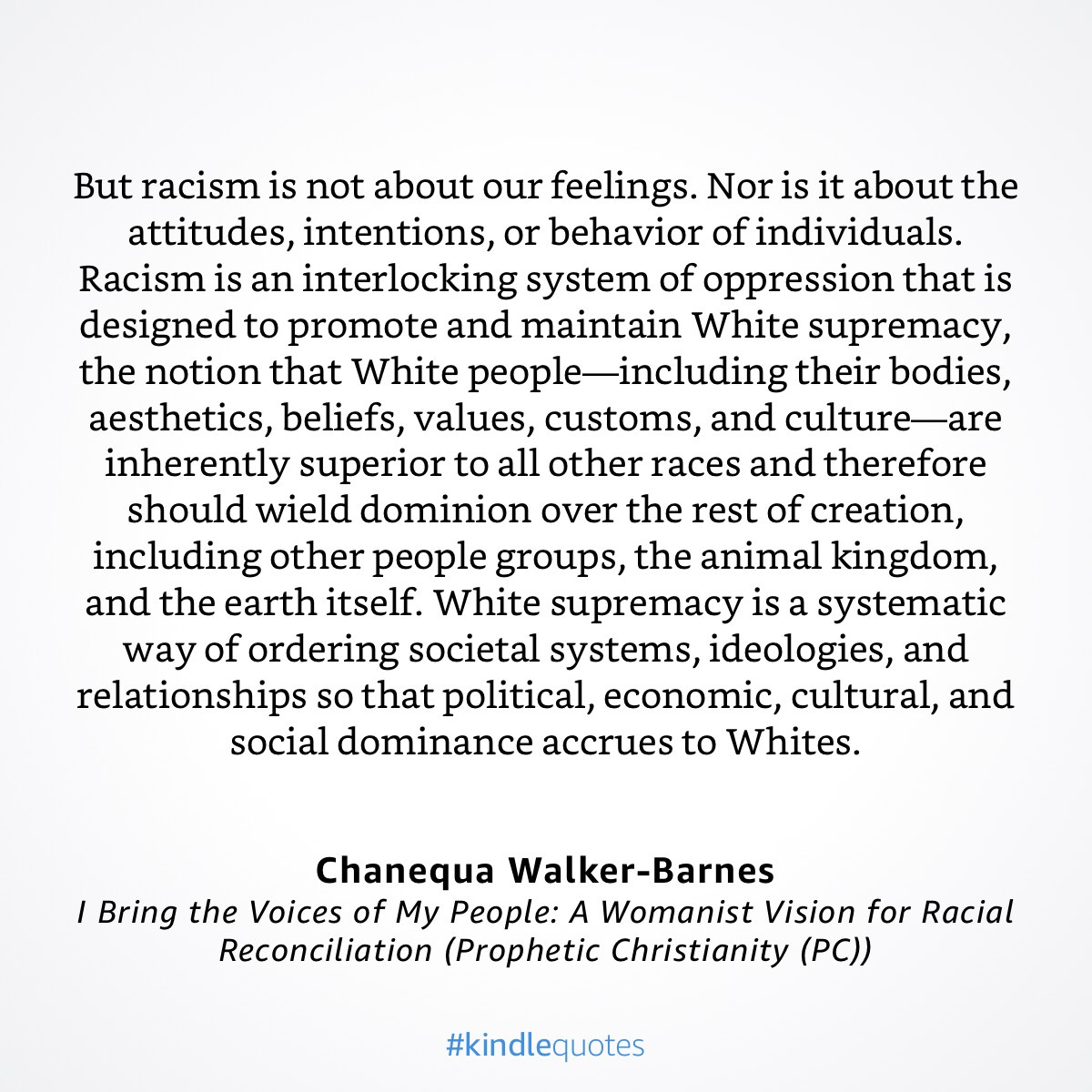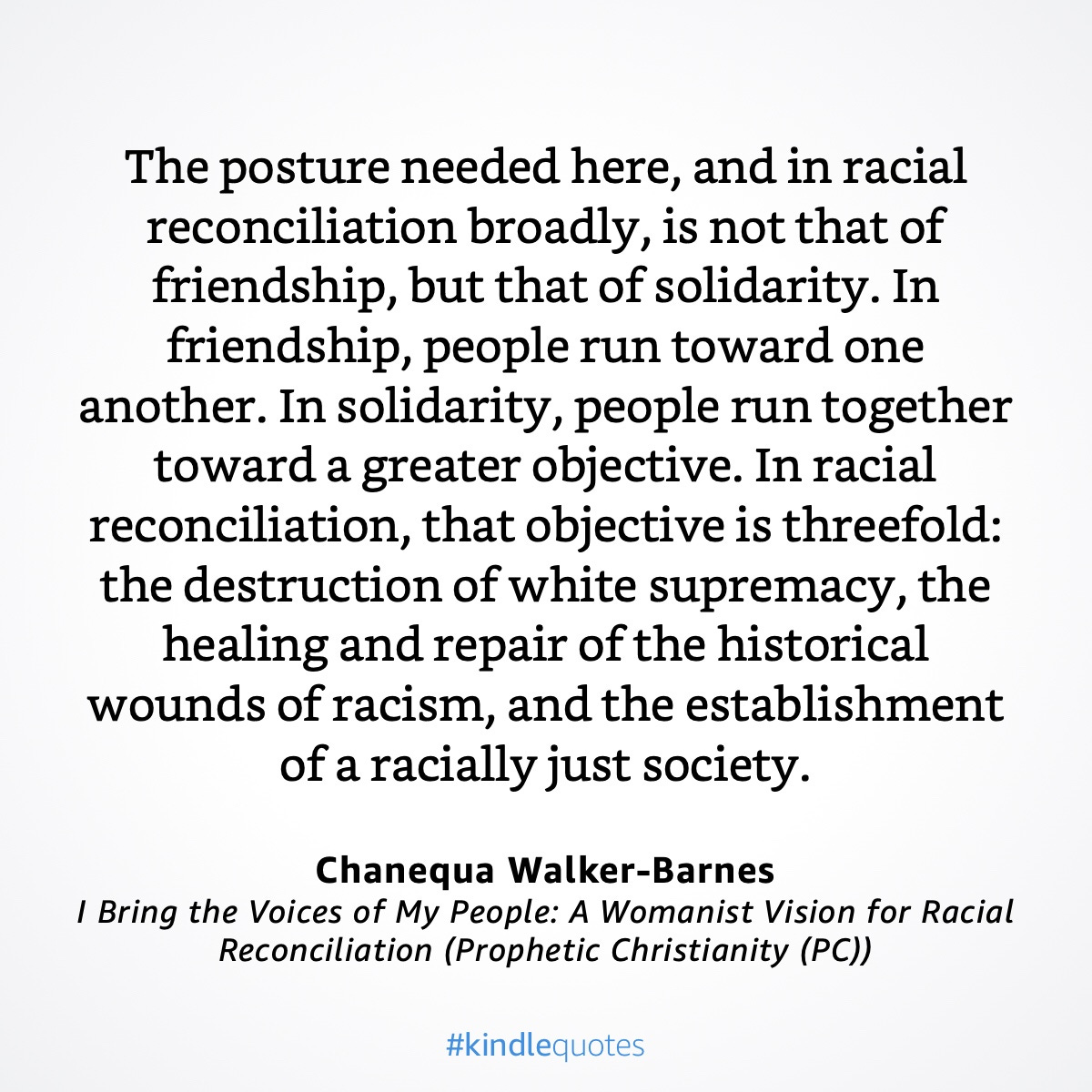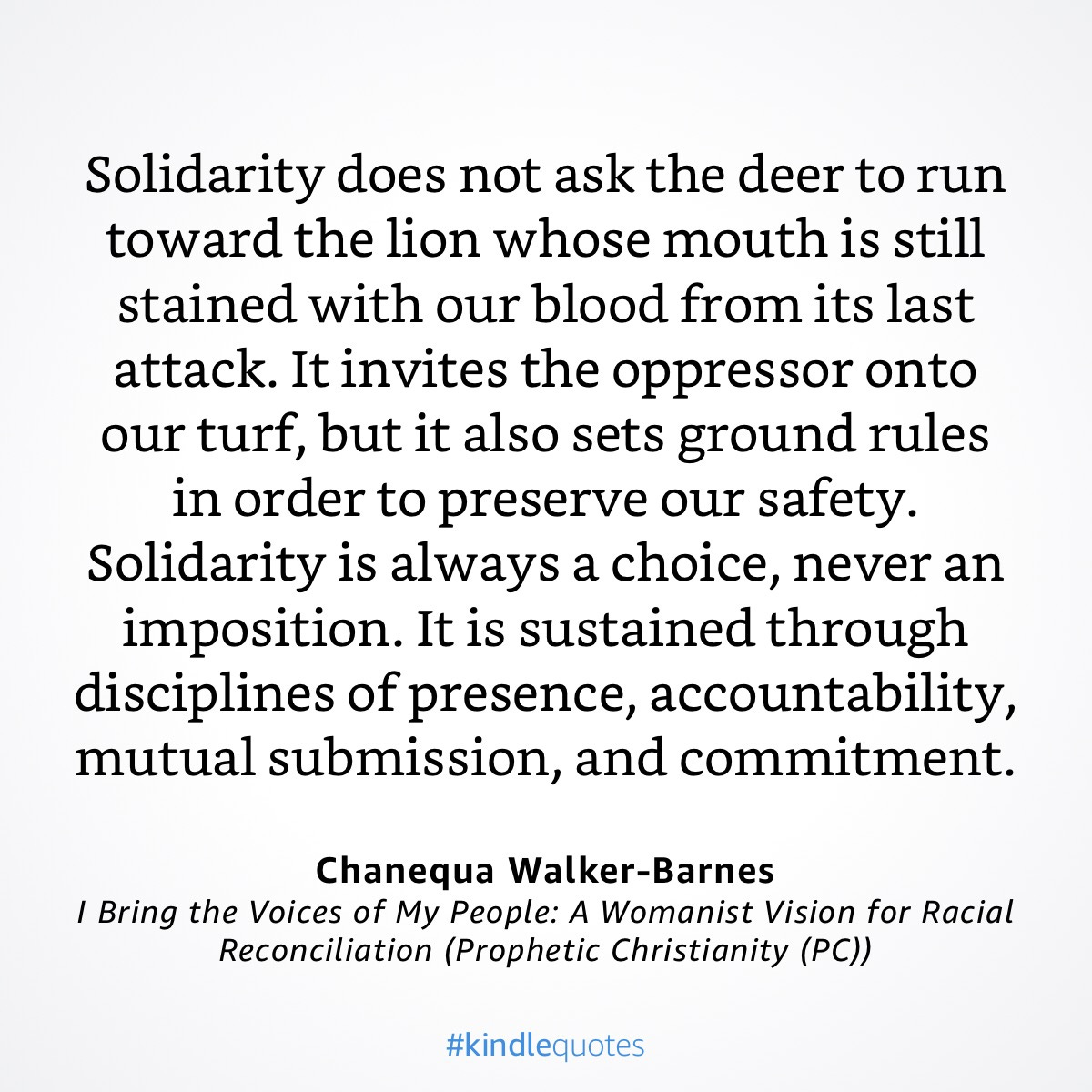Since the election, there have been a lot of calls for reconciliation and unity on both the left and the right side of the political spectrum. In social media posts, people feign surprise that friendships are ending over voting choices. And politicians speak of the importance of bridging divides and a return to civil discourse. It’s the very type of anemic response to systemic racism that I critiqued in my second book, I Bring the Voices of My People. The book comes from spending ten years in the Christian racial reconciliation movement, ten years during which I immersed myself in every possible conversation and initiative on racism and racial justice in the American church that I could find. More often than not, I was woefully disappointed.
Christians, in particular, have really poor understandings of racism or other forms of systemic oppression – despite all the books on racism that made it to the bestsellers charts in 2020, despite all the talk about critical race theory, despite the supposed proliferation of “woke Christianity.” So today I want to share a few quotes from I Bring the Voices of My People with some updated reflections.
Be wary of calls to unity right now. Yes, it is true that civility has all but disappeared in public discourse. But we cannot settle for a type of civility that covers evil with a brightly colored band-aid. We have done this before. It is the American way. After the assassination of Rev. Dr. Martin Luther King, Jr., a lot of White people wanted to distance themselves from the overtly hateful and segregationist speech of folks like Bull Connor, George Wallace, and the KKK. They decided that the best way to not be racist was to be nice to everyone and to not speak about anything related to race. Ultimately, this meant that accusing someone of racism became seen as a greater sin than being racist. This does not move us toward justice. It silences the victims of structural discrimination and prevents us from addressing the ills of our world.
Racism is not about how people feel about each other. It’s not about which groups we like or dislike. We all have the capacity to be prejudiced against different groups. And honestly, it wouldn’t matter much if we didn’t act out on our prejudices, if we didn’t actively discriminate against others. But racism is about more than acts of discrimination. It’s about systems that uphold White supremacy. These systems operate regardless of how nice we are to other people. They even operate regardless of the language we use about other people. People can be racist even as they smile in your face and say all the right things.
It’s like that seen in The Wiz when Dorothy and her friends finally reach Oz. It’s easy to be tricked by the pageantry, by the beauty and opulence and choreography. And let’s be honest: sometimes we want to be tricked. We want to think that people are who they say they are. But like Dorothy, we need to stay focused on our mission. We need to insist on confronting the people behind the performance, on seeing the machinery that keeps the illusion in place. We must learn to see the patterns of inequity and the structures that uphold them. We must also recognize that those patterns are not accidental. They were constructed by people who actively wanted to build a world where power would accrue to White people. They are maintained and defended today by people who want the world to stay that way. And a lot of those folks are in our churches, workplaces, and neighborhoods. They are definitely in our government. If you’re White, they may be in your family.
I have heard that what a lot of White Christians plan to do in this season is to be friendlier to Black people and other people of color. Keep your friendship. We don’t need it. We don’t need your smiles and soft-spoken expressions of concern. We don’t need your apologies on behalf of other White people. We don’t need your private declarations of friendship that are not attended with public displays of action. We need solidarity.
Solidarity comes at a cost that few White people are willing to pay. The cost is so great that a lot of people of color don’t want to impose it. But we must. We must demand that White antiracists prove themselves to be trustworthy, to be accountable, to be prepared to learn, to be prepared to risk messing up and to make amends when they do. They must prove that they are trying to be redeemed from the culture of White supremacy that they’ve been socialized into. And they must demonstrate serious commitment to challenging racism among other White people.
Reconciliation requires repentance and conversion. And for the second time in a row, a large number of White Christians have demonstrated that they are unrepentant. In the words of Gloria Anzaldúa, “We are not reconciled to the oppressors who whet their howl on our grief. We are not reconciled.”1 So rage. Fight. Flee to places of rest. But don’t you dare be reconciled to this.
Gloria Anzaldúa, “Speaking in Tongues: A Letter to Third World Women Writers,” in Moraga & Anzaldúa, 2015, 171.









Dr. Chanequa wow and thank you for outstanding truth-telling. Your unapologetic quotes breathe refreshment to my wearied soul. As we have worked in similar circles over the years your words deeply resonate without compromise that the spirit of white supremacy must go!
Thank you for that which is flowing through you from Christ that is giving me the encouragement to continue to refuse to settle for anything less than the resurrection life of Christ that brings full freedom for all verses a false conciliation still fueled by lies and myths where power over through the spirit of white supremacy continues.
Thank you for clear insights that if applied could actually provide pathways for
TRUE RECONCILIATION rooted in the Jesus of the Bible.
Just saw Wicked in theaters last night. So your reflection is resonating even more in the call for liberation is demonized by those maintaining oppression as a vehicle for power. More demonized than the oppression itself. As you named. Yes to public solidarity. I am (still) not entertaining private expressions of anything.